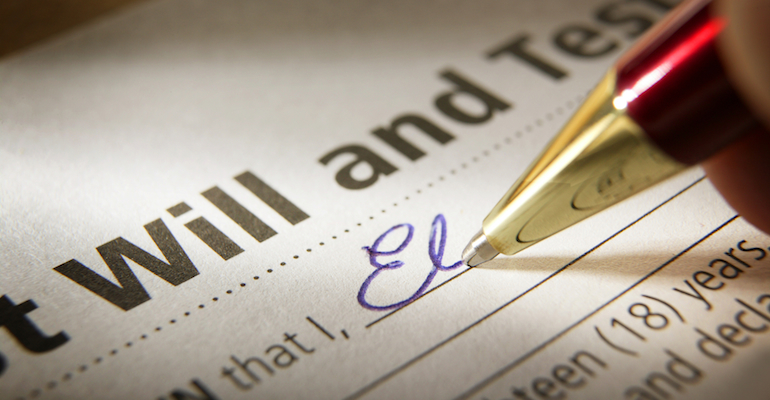For single parents, one of the most important parts of your will is the naming of a guardian — the person who will care for your child if you die. It is daunting to think about who will raise our child in such a circumstance, but making a will — and keeping it current — protects your child. Consider the possible outcomes if a good plan isn’t made: Children have been sent to live with distant relatives they barely knew, or were placed in foster care, when a designated guardian was unable to raise them.
Mark Gross, an attorney who specializes in estate planning, agrees that having a will is essential for single parents. A will should name several things, he says: an executor, someone who is responsible for carrying out the terms of the will; a guardian; and the beneficiaries.
Anything you feel strongly about should be stated in your will, says Gross. Samantha has an open adoption, so she stated in her will that she wanted her son to have ongoing visits with his birth family. “I was superstitious about writing a will,” Samantha said. “But when I had a friend pass away from cancer, I decided it was selfish of me not to make my wishes clear.”
Choosing a Guardian
There are many factors to consider when choosing a guardian. Would your child be better off going to live with a particular relative, even if she would have to move far away? Or do you feel someone closer to home might be the better choice? Does this person share your values? Is the guardian physically up to the task? If your child is older, you may want to ask her what choice she would make, but ultimately you will make the decision. Revisit your will every few years, and more often, if circumstances have changed. For instance, the guardian you originally named may no longer feel capable of raising your child, or you may decide that your child would do better with another guardian. (For this reason, it’s important to name a back-up guardian.)
It is also important to talk openly with anyone you are considering as a guardian. You may have someone in mind who just doesn’t feel capable of parenting. Try not to take it personally if they say no. You want your child to be raised by someone who feels positive about caring for him. Jan asked her sister, Sarah, who was married and lived nearby, if she would be her daughter’s guardian. However, Sarah told Jan that, although she loved her niece, she didn’t want to add another child to their family. Sarah and her husband were struggling financially, and their marriage was rocky. Although saddened at first, Jan realized it would be better for her daughter to be raised in a less stressful home. “I finally asked a close friend, and she was honored that I was willing to entrust my child to her care,” says Jan.
Getting Started
There are many online sites that help people set up wills. These are perfectly legal and, for a simple will, may suffice. However, as Gross points out, it’s hard to sit down with an online service and hash out the fine points of your will. Your best bet may be to find an attorney through word of mouth.
Keep in mind that a will should be more than a simple directive as to who gets your personal property and who is the guardian of your child. Other documents to include when you execute your will are a health care proxy (to appoint an agent who can make health care decisions for you if you become incapacitated), and a power of attorney (to designate someone who can step in if you are unable to make financial and legal decisions).
Also, since you don’t want to place a financial burden on whomever you designate as guardian, it is important to provide for your child financially. Take time to learn about life insurance and other money matters. The resources below can help.


